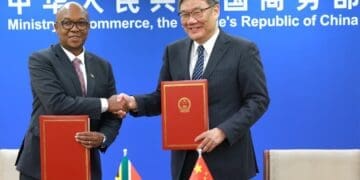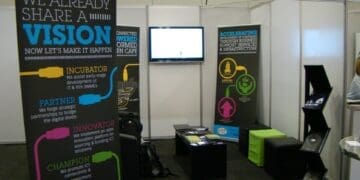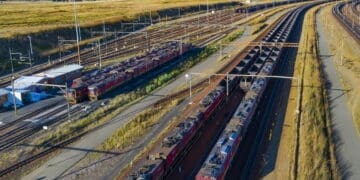SMMEs in Johannesburg are in bad shape and the city must shoulder some of the blame, according to newly appointed economic development MMC Nukili Mbundu. “Not only have they had to contend with the advent of the Covid-19 pandemic, but their situation has been exacerbated by the inefficiencies within the system,” he told Vutivi News.
“SMMEs do not have access to the basics which are crucial in efforts to creating economies of scale, (including) an efficient permits system, access to city facilities for office space, and access to back-end support services in finance to name a few,” he pointed out. He outlined some of the interventions the city had in the works, as well as his views on SMMEs and Johannesburg’s informal economy.
The MMC said that Joburg-based entrepreneurs did not possess the kind of tools needed to upscale operations and pursue industries of scale. “From a city point of view, we have also dropped the ball in terms of assisting SMMEs,” he said. “From a basic analysis, you find that SMMEs do not have access to services which are vital in connecting them to the main economy.
“These include access to city facilities for storage purposes for merchandise, efficient infrastructure in enabling efficient transport and logistics, and access to fixed broadband,” Mbundi said. He said to make the easier for informal traders, the new administration had committed to streamlining the permits’ system.
“One of our immediate priorities as a department, which has been discussed extensively during the induction period and the executive workshop that took place at the beginning of the month, was that we must install an efficient permits’ system as a means of taking care of the informal economy as this function has been moved within the Department of Economic Development,” Mbundu said.
“As part of our strategy, we are currently looking into either the development and or the procurement of a system specifically for the licensing of informal traders trading within the city.” The informal economy, which was worth around R2,8 billion and employed about 2,6 million people, had to be protected, the MMC said.
There were also other interventions on the cards. Mbundu told Vutivi News that the city was planning on intensifying the inner-city rejuvenation project in its first 100 days, which will include reclaiming hijacked buildings “Once the reclamation of buildings has been achieved, we will then turn the focus onto entering into public-private partnerships where the properties can be repurposed for either residential and or commercial real estate,” he said. “This priority will unlock many job opportunities, assisting with the return of business into the city and providing appropriate, adequate residential units for social housing or student accommodation.”
Certain sectors would also be prioritised for local businesspeople, which was in with the government’s localisation drive. “This will interplay with the department’s plans of stimulating the township economy,” Mbundu said.

































































